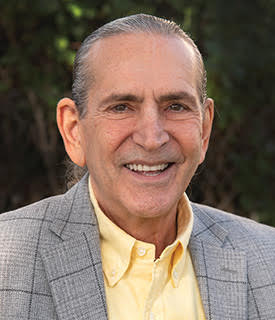
We’re all familiar with people who think they’re right, even if they’re wrong. These are the people who never back down, standing firm on their beliefs, regardless of the arguments against them. Even if you bring valid evidence that proves them wrong, they remain unshakable. Or maybe you’re guilty of being one of these people? If so, why do you think you’re right, when you’re wrong?
How beliefs affect the mindset
Julia Galef spent years studying this exact kind of certainty. She wasn’t only interested in how someone could be so sure of something that lacked evidence, but how their minds were unchanged after being proven wrong. She compares us to soldiers, having motivations to survive, protecting ourselves and our side, pursuing to defeat the enemy. Then she compares us to scouts, who’s job is not to attack or defend, but to understand. Scouts go out, map the terrain, plan strategies, and ultimately want to know what’s really out there. It’s important to them to have all the information needed to be as accurate as possible. To Julia, both of these roles are representations of different types of mindsets we could have. She argues that good judgement, making accurate predictions and good decisions, is mostly about what mindset we’re in.
An example from history
To help us understand this, she shares a historical story. In 1894, the French army sent an innocent man to prison for life. They found a torn letter from a fellow officer who was selling military secrets to the Germans. The army was highly anti-semitic and accused Alfred Dreyfus (the only Jewish soldier) of being guilty for the crime. They compared his handwriting to the letter and determined it a match, while handwriting specialists would disagree. They found him guilty when they couldn’t find any evidence in his apartment (which they thought made him sneaky), he learned 4 languages when he was young (which they thought showed his interest to conspire with foreign governments later in life), and because he had good memory (since spies remember everything).
Truth is, they didn’t have strong evidence, but they somehow knew he was guilty. Historians don’t believe the army framed him. The officers genuinely believed Dreyfus was guilty. What does this say about the human mind, that we can find something compelling enough to convict a man to life?
“Motivated reasoning” explained
This is explained as “motivated reasoning,” when our unconscious motivations, desires, and fears shape the way we interpret information. Some ideas and information seem like our allies, while others can seem like our enemy and we want to shoot them down.
We see this happen in sports as well, when a referee makes a call against the other team, we approve and let it go. Yet, if he made a call against your own team, you would look into it and try to prove him wrong. This is the same kind of judgment that affects the way we vote and what we consider to be fair or ethical. The scary part of motivated reasoning is how unconscious it is. We think we’re being objective and fair minded but we’re unconsciously bias.
The truth is not always pretty or convenient
Luckily for Dreyfus, there was a man, Colonel Piquart who noticed military information was still being leaked to the Germans after they imprisoned him. Piquart wondered if Dreyfus actually was innocent. They also found someone else whose handwriting matched the original found letter perfectly. But when Piquart showed his superiors this evidence, they either didn’t care or made irrational reasonings why Dreyfus is still guilty. Piquart did prove Dreyfus’s innocence 10 years later after being imprisoned himself for disloyalty to the army.
Picquart was also anti-semitic, which makes him a hero of this story because he was able to accept and stand for truth regardless of his personal beliefs. He is the poster child for the scout mindset. These people don’t care to win or lose, but just want to see what’s really there as honestly and accurately as possible, even if it’s not pretty or convenient.
How emotions affect judgement
Julia Galef posed the question: Why are some people able to cut through their own prejudice and motivation, able to truly look at something without bias? The answer is emotion. Soldier mindset is rooted in defensiveness and tribalism. Scouts are curious, get pleasure from learning new information. They’re intrigued by something that contradicts their expectations. They think it’s virtuous to test your beliefs. They also don’t see changing your mind as a weakness. Their self worth as a person is not tied to how right or wrong they are about a particular topic. They’re able to accept being wrong without feeling dumb or stupid. This kind of mindset makes for good judgement.
Good judgement isn’t about how smart you are and how much you know. It’s all about how you feel.
How to improve your judgement
If we really want to improve our judgement as individuals and as societies, what we need most is not more instruction, but the scout mindset. We need to change the way we feel. We need to feel intrigued instead of defensive when we encounter some information that contradicts our beliefs.
Julia poses another question: What do you most yearn for? Do you yearn to defend your own beliefs? Or do you yearn to see the world as clearly as you possibly can?
We should all seek the truth. If you’re struggling to accept something that contradicts your belief or maybe you’re feeling misunderstood yourself, please contact Crownview Medical Group. A trained medical professional will be able to work with you based on your individual needs.
[divider style=”empty” margin_top=”40px” margin_bottom=”0px”]
[divider style=”empty” margin_top=”20px” margin_bottom=”0px”]
We can provide guidance on belief systems.
Get in touch with a trained medical professional who can who can provide guidance.
[button color=”black” custom_color=”#ffffff” font_color=”#000000″ link=”https://sandiegopsychiatrist.com/contact/”] Contact us[/button]
[divider style=”empty” margin_top=”60px” margin_bottom=”0px”]
Source:
























